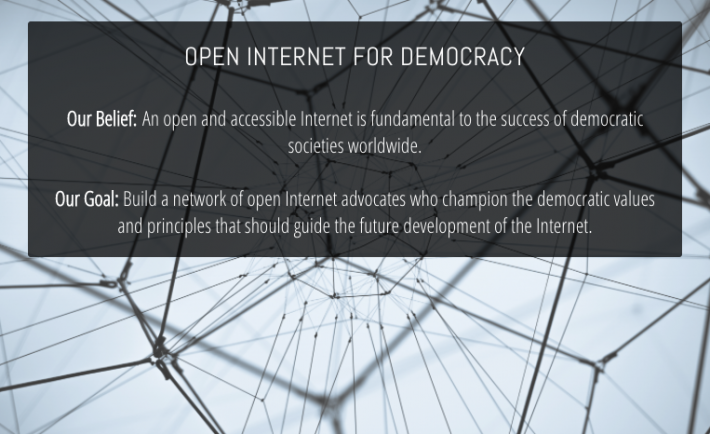October 29 is commemorated as Internet Day, the anniversary of the first message sent between two independent computer terminals in 1969. The term “message” may be generous -- only the first two letters of the word “login” were in fact transmitted before the connection crashed. However, decades after that initial attempt, it is now difficult to imagine an aspect of human life that has not been fundamentally altered by the establishment of remote connections between distant computer networks (aka the internet).
More than just a tool of convenience, the internet has become the primary forum for modern communication, and access is considered an indicator of an open and democratic society. Basic human rights such as the freedom of expression and assembly are now exercised online, as individuals gather to organize and advocate through social media fora, messenger apps or text message groups.
More than just a tool of convenience, the internet has become the primary forum for modern communication, and access is considered an indicator of an open and democratic society.
Unfortunately, there has been a rising tide of censorship, surveillance, slowdowns, selective blocking and outright internet cuts at peak times of political engagement, particularly around elections. In Uganda, the government implemented a four-day ban on social media applications around the highly-contested 2016 presidential elections in an attempt to limit dissent and political discussion. Governments in Spain, Zimbabwe and the Democratic Republic of the Congo have employed similar tactics of blackouts and censorship, typically in response to anticipated political turmoil. All together, there were 55 documented internet shutdowns in 2016, and 61 in just the first three quarters of 2017.
Reversing this trend will require a coordinated multi-stakeholder approach to redefine norms for a free and open internet. Ultimately, civil society activists, media representatives, business leaders, governments, internet governance bodies and more will need to advocate for new international standards that recognize the critical role the open internet plays in democratic societies. Toward this end, NDI has been collaborating with the Center for International Private Enterprise (CIPE) and the Center for International Media Assistance (CIMA) to develop A Democratic Framework to Interpret Open Internet Principles. The framework -- adapted from a set of norms and standards developed by the UN Internet Governance Forum’s Internet Rights and Principles Dynamic Coalition -- outlines nine separate principles critical for an open and democratic internet. It also includes input from over 50 global organizations, and contextualizes the principles with on-the-ground examples, warning signs and links to related international frameworks and standards. It is designed to be easily accessible to NDI’s partners operating in fragile and emerging democracies, many of whom are just beginning to think about their rights in the digital space.
The goal of the framework is threefold:
-
to build a network of global advocates working to advance democratic values online,
-
to strengthen efforts in fragile and emerging democracies to promote an open internet, and
-
to serve as a tool for advocates of the open internet to evaluate evolving domestic laws and practices governing the internet in relation to global human rights principles.
We strongly believe that it is those living in countries affected by censorship, surveillance or shutdowns who know best what they need to organize, advocate and build more democratic societies using the internet. In order to finalize the framework, NDI is committed to ensuring that the content of this framework is led by and includes feedback from a diverse group of stakeholders. NDI is requesting your suggestions and input on the framework during a public comment period, which ends November 17, 2017. You can read the draft framework -- along with additional information about its development and vision -- and provide feedback at https://openinternet.global.
With a unified vision from civil society around the globe, this framework can help activists and advocates push against forces at the local, national or international level who threaten to squeeze the democratic potential out of the online communications revolution.

